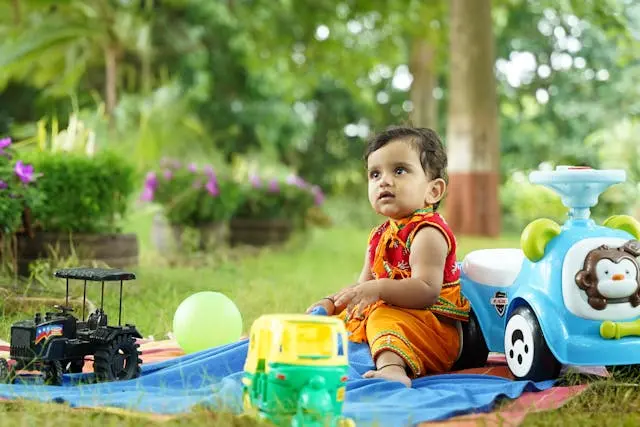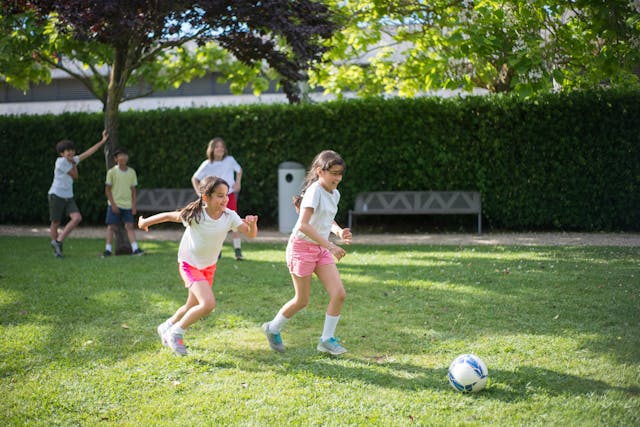How to Teach the Quran to Young Kids?
Parents want their children to start learning the Quran as soon as they learn to talk. In such a situation, you must know how to teach the Quran to kids at a young age. What is a good starter Quran for kids?
Introducing the Quran to children at a young age is a beautiful way to nurture their faith and lay the foundation for strong moral character. As a preschool educator, I’ve witnessed firsthand how young children readily absorb information and respond positively to engaging learning experiences.
Here are some effective strategies to introduce the Quran to preschoolers:
1. Put Them with Consistency
After the painstaking process of one and a half to two years of kids, I’d like to step forward with the Quran with consistency. Now, you step back and have the patience to hold your kids on patches to learn the Quran. The only thing you could have for your kids’ success is the procedure on what it takes to get your kids to read the Quran.
You should teach your kids to read the Quran at a slow pace.
If you’re just talking about getting started, consider Arabic letter flashcards. Use a Magnet board book to teach your kids to learn to read the Quranic letters with consistent short lessons daily.
2. Keep the Duration of Lessons Short
Every child is different; one child might go over the Arabic letters for a few months or a month. He will be completely fine, while another child may take several months to recognize each letter to make the sound. That is okay. We advise you to start as young as two years old to get them to point to the letter.
Render them to make the sound that the letter makes vowels or long words.
How long or short should a lesson be with a two or three-year-old? A five-minute lesson is fine, no more than ten minutes.
Do not exceed the lesson duration; otherwise, your child might get bored.
3. Teach As Per Unique Learning Styles
The third thing is every child learns differently. So, you might have a child who masters say 80, and you think that they’re getting bored. So, you move forward, and then there might be a handful of letters that they continue to misidentify or not recognize or forget the sound. However, it’s okay if you help them; you give them a little hint or a tip. However, if you see that the child has mastered 80 per cent, then they might be getting bored move on to the next lesson to keep them challenged and excited.
4. Try Some Interesting Activities
Always present the next lesson as excitement. If we get through this, guess what we get to do next make it fun. It creates fun names and titles, whatever you think activates the child’s mind and connects with them. So, if you know a movement, a word, or a gesture that helps them remember. For example, the vowel sounds, if you know a letter or gesture of words or something like that helps them remember that then use it. In hifz classes for kids, the tutors can also engage them in group activities to make the session interesting.
5. Adopt Interactive Learning Tools
On a kinaesthetic level, using one of those Magna doodles or LCD drawing tablets is a great idea for learning the Quran. It is viable because you can teach to write as well so share your examples as the child can write with you. It is more engaging as opposed to just simply staring at a piece of paper.
6. Speak Repeatedly For Correct Pronunciation
If you are teaching your child, you need to have a basic comprehension of understanding of the dry and tough wording. You must practice the correct pronunciation and the articulation of the Arabic letters. It is an obvious fact that you need to keep this in mind because you don’t want to teach your child the wrong letters and sounds. So, if your skill is not up to par, one way to get around that is by leveraging any number of apps. Out there, our favourite is Easy Quran IQ.
7. Instill in Them Love For the Quran
However, it is the wish of every parent that their child will love the Quran. How do you nurture that relationship? So, how do we instil the love for the Quran in the minds of our children? There are several things we can do; in the end, it depends on Allah giving guidance.
One very important thing is that we have to love the Quran and live a life that reflects reliance on the Quran for guidance. Otherwise, pontificating about how great the Quran is, is not going to make any difference because the children see our attitudes and they’re going to copy that. So, the Quran has to be dear to us, we have to love it ourselves and you know, it’s very easy for Muslims to love the Quran because the Quran is a very unique scripture among the world’s religions.
8. Parents Should Recite Quran While Children are Around
When we pray the Quran in front of our children, they grasp the sense that God is speaking to us. So, they sense that God is addressing us through this book. Though, it’s not only that but, it’s also like we are reciting the words of God. So, somehow we are immersed in divinity as we are reading the Quran. So, we ourselves should be in love with the Quran and that will naturally transmit to the kids. But we should also involve the children. The Quran is an easy book to memorize. It is also graspable for children because their brains are like sponges.
9. Don’t Rely on Just Arabic
The next point is about understanding the Quran for your children. It’s a good practice to induce the children to grasp the message of the Quran through the recitation of the Quran. It is not only in the original Arabic but also in a translation in case when Arabic is not your mother tongue. Even if you know Arabic as your mother tongue but you live in an English-speaking environment, the children may be more conversant in English than they are in Arabic. Especially when it comes to intellectual discourses, they get a proper translation commentary and so on. However, learning Arabic to understand the Quran would be the best.
10. Practice Patience and Persistence
Every single day for those 10 minutes you make time for the lesson you progress onwards. You don’t let perceived setbacks keep you from moving forward and stay patient in the face of frustration. There are going to be days that you will get angry at your child. Especially, if they’re two or four years old, there’s a joke about my kid just turned three and uh and one of the things. Your persistence on a three-year-old is essentially an important thing to do.
We hope these tips will work for your young ones to learn and read the Quran. May Allah welcome your efforts and deeds and keep your children on the Sirat-e-Mustaqeem the Hidayah. Amen!
11. Making it Meaningful
Connecting the Quran to Everyday Life: Discuss how the teachings of the Quran translate into everyday behaviour. Point out examples of kindness, respect, and generosity in your daily interactions, highlighting how these values align with Quranic messages. Show children how the wonders of nature reflect the beauty and power of Allah’s creation. Encourage them to ask questions and foster curiosity about the deeper meanings within the Quran.
Celebrating Milestones: Acknowledge and celebrate even small achievements, like memorizing a new verse or correctly identifying an Arabic letter. This positive reinforcement keeps children motivated and reinforces the joy of learning the Quran. Organize small family gatherings or Quranic circles to share progress and build a sense of community around this special journey.
Introducing the Quran to young children is a rewarding experience that lays the foundation for a lifelong connection with the divine. By creating a positive learning environment, utilizing engaging activities, and celebrating milestones, you can nurture a love for the Quran and its teachings in your young learners. Remember, patience, consistency, and a sense of wonder are key to this beautiful journey









